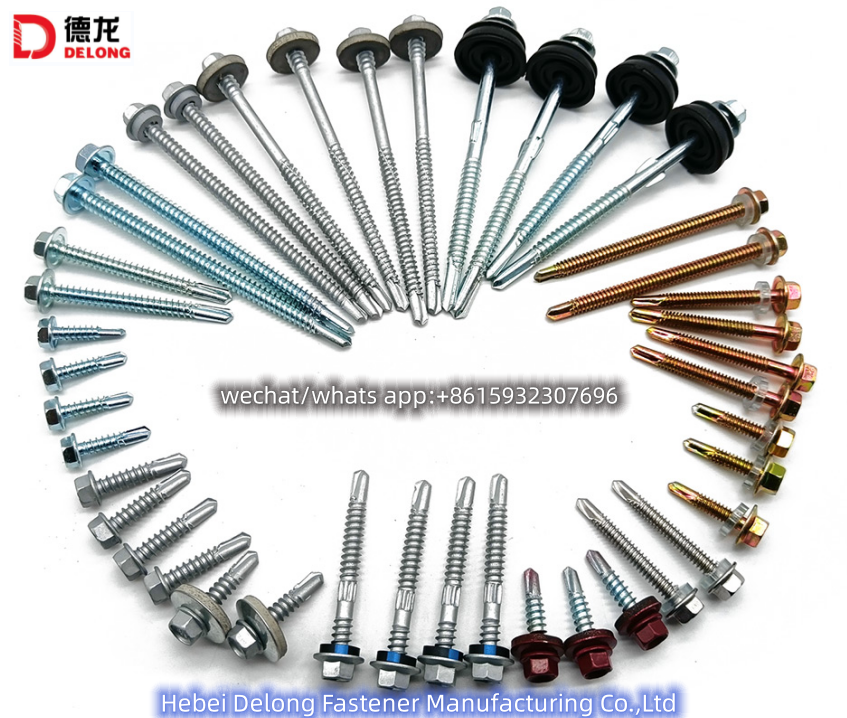famous din125 metal flat washer
The Importance of DIN 125 Metal Flat Washers An Overview
In the world of mechanical engineering and construction, the significance of small components often goes unnoticed. Among these, the DIN 125 metal flat washer plays a crucial role, especially in applications involving bolting, fastening, and structural integrity. This article explores the characteristics, applications, and benefits of utilizing DIN 125 flat washers in various industries.
What is a DIN 125 Flat Washer?
The DIN 125 washer is a standardized flat washer that adheres to the specifications set by the German Institute for Standardization (Deutsches Institut für Normung, DIN). The '125' in its designation refers to a specific standard for flat washers, which ensures consistency in dimensions, material specifications, and performance capabilities. These washers typically have a diameter larger than that of the bolt or screw they are used with, allowing them to distribute load evenly across the surface.
Made from various materials, including stainless steel, carbon steel, and plastic, DIN 125 washers can be engineered to withstand different environmental conditions, making them versatile for numerous applications. Stainless steel variants, for instance, offer excellent resistance to corrosion, making them ideal for use in outdoor or marine environments.
Applications of DIN 125 Washers
DIN 125 flat washers are widely used across various sectors, including construction, automotive, aerospace, and manufacturing. One of their primary functions is to provide a smooth bearing surface, minimizing friction between the bolt head and the surface of the material being fastened.
famous din125 metal flat washer

In construction, these washers are crucial for structural connections, ensuring that bolts and screws don't pull through the material, thereby enhancing the reliability of structures. In automotive applications, they help in securing various components, contributing to the overall safety and functionality of vehicles. The aerospace industry relies on DIN 125 washers for their lightweight yet strong properties, where even a small increase in weight can affect performance significantly.
Benefits of Using DIN 125 Flat Washers
The utilization of DIN 125 flat washers comes with numerous benefits. Firstly, they enhance load distribution which reduces the risk of damage to the materials being fastened. This is particularly vital in applications involving softer materials like aluminum or plastic, where improper fastening can lead to deformation or failure over time.
Additionally, these washers can prevent galvanic corrosion, a phenomenon that occurs when different metals are in electrical contact in a corrosive environment. By providing an insulating barrier, flat washers protect the integrity of the metals involved, thus prolonging the lifespan of the assembly.
Moreover, DIN 125 washers contribute to vibration resistance. In scenarios where machinery or equipment may experience movement or vibration, these washers help maintain tightness over time, reducing the chances of loosening and subsequent failure of the connection.
Conclusion
In summary, the DIN 125 metal flat washer may appear to be a simple component, but its importance in various industrial applications cannot be overstated. By enhancing load distribution, preventing corrosion, and ensuring the integrity of fastenings, these washers play an essential role in achieving reliability and performance. As industries continue to evolve and push the boundaries of engineering and construction, the usefulness of such standardized components will remain pivotal in fostering safety, efficiency, and durability. Investing in quality DIN 125 flat washers is, therefore, a step towards ensuring long-lasting and robust connections in any project.
-
Top Choices for Plasterboard FixingNewsDec.26,2024
-
The Versatility of Specialty WashersNewsDec.26,2024
-
Secure Your ProjectsNewsDec.26,2024
-
Essential Screws for Chipboard Flooring ProjectsNewsDec.26,2024
-
Choosing the Right Drywall ScrewsNewsDec.26,2024
-
Black Phosphate Screws for Superior PerformanceNewsDec.26,2024
-
The Versatile Choice of Nylon Flat Washers for Your NeedsNewsDec.18,2024










